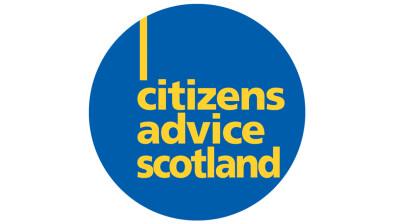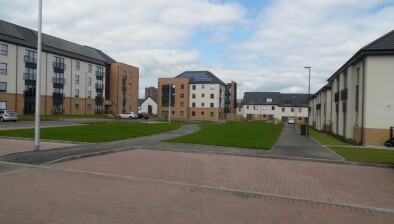More than a million people in UK ‘living in destitution’
 A groundbreaking study into destitution in the UK has revealed that 1.25 million people, including over 300,000 children, are so poor they cannot afford to eat properly, keep clean or stay warm and dry.
A groundbreaking study into destitution in the UK has revealed that 1.25 million people, including over 300,000 children, are so poor they cannot afford to eat properly, keep clean or stay warm and dry.
Research from the independent Joseph Rowntree Foundation (JRF) estimated that 184,500 households were in contact with charities in a typical week last year for essentials such as food, clothes, shelter and toiletries.
The report is the first comprehensive study into the total number of people living in destitution, the most severe form of poverty in the UK, statistics for which are not currently measured by the UK government.
Commissioned by JRF in response to perceptions that extreme poverty had risen in recent years, the research was conducted by experts at Heriot-Watt University with advice from a wide range of experts and service providers across the UK, and has taken two years to complete.
Destitution was defined as when someone lacked two or more basic essentials in one month. It meant that, over this month, people have: slept rough, had one or no meals a day for two or more days, been unable to heat or to light their home for five or more days, gone without weather-appropriate clothes or gone without basic toiletries.
In total, researchers found that 1,252,000 people, including 312,000 children, were destitute at some point in 2015 and around a third had a complex need.
The group most likely to become destitute is younger single men, but there are considerable numbers of families living in destitution. While migrants face disproportionate risks of destitution, the great majority (79 per cent) of those destitute were born in the UK.
There is no single cause of destitution, but most people had been living in poverty for a considerable period of time beforehand. Common causes included the extra costs of ill health and disability; the high costs of housing and other essential bills; unemployment and a financial shock like a benefit sanction or delay.
The number of people experiencing severe poverty, which is linked to destitution, has been rising sharply in the UK since the economic crash in 2008. Areas with the highest levels of destitution mirrored areas with generally high levels of poverty. Some London boroughs, former industrial areas of the North of England and deprived coastal towns had the highest levels of destitution.
Julia Unwin, chief executive of the Joseph Rowntree Foundation, said: “There are a shocking number of people in the UK living in destitution. It is simply unacceptable to see such levels of severe poverty in our country in the 21st Century. Governments of all stripes have failed to protect people at the bottom of the income scale from the effects of severe poverty, leaving many unable to feed, clothe or house themselves and their families.
“Tackling the many causes of destitution is difficult. Many people affected are living on a very low income before they are no longer able to make their incomes stretch, or a financial shock like a benefit delay or family breakdown pushes them over the edge into destitution. We have to tackle these root causes. Government, businesses and communities need to work together to provide better emergency support, make basic essentials more affordable and create better jobs if we are to end destitution in the UK.”
Professor Suzanne Fitzpatrick, director of the Institute for Social Policy, Housing, Environment and Real Estate (I-SPHERE) at Heriot-Watt University and one of the authors of the report, said: “Destitution takes a huge toll on people’s mental and physical health and wellbeing. The people we spoke to told us they felt humiliated that they couldn’t afford basic essentials without help. Many said that this affected their relationships and left them socially isolated.
“This report has shown that destitution is intrinsically linked to long-term poverty, with many people forced into destitution by high costs, unaffordable bills or a financial shock such as a benefit sanction or delay. More co-ordinated debt-collection practices, particularly from DWP, local councils and utility companies, could help to avoid small debts tipping people in to destitution.”
JRF is calling on the Office of National Statistics to begin officially tracking the number of destitute people in the UK.
Responding to the report, Citizens Advice Scotland spokesperson Rhiannon Sims, said: “These figures show the scale of destitution in the UK, and are a sobering reminder that not enough is being done to prevent people from experiencing periods of no income, or to provide adequate support when people are faced with a crisis.
“Our evidence shows us that many people have no resilience to income shocks, and it only takes a delayed benefit payment or the loss of a shift at work to push someone into a situation in which they cannot afford basic essentials: food, shelter, warmth. During 2014/15, 1 in 42 CAB clients needed advice in relation to foodbanks and food parcels.
“Over the past three years, CAS has seen a rises in cases relating to rent, council tax and utility arrears, with declining consumer credit debt. This shows that people can no longer afford to access high interest credit, and are instead falling behind on their rent, gas and electricity, putting them at risk of homelessness and poor health.
“The rise in foodbank referrals, which reached 1 million in 2015/16, is another indicator that there is a huge section of society who are living in extreme poverty. This is not good enough. The UK and Scottish governments need to urgently address this crisis and implement policies which provide an adequate safety net for citizens of the UK.”







